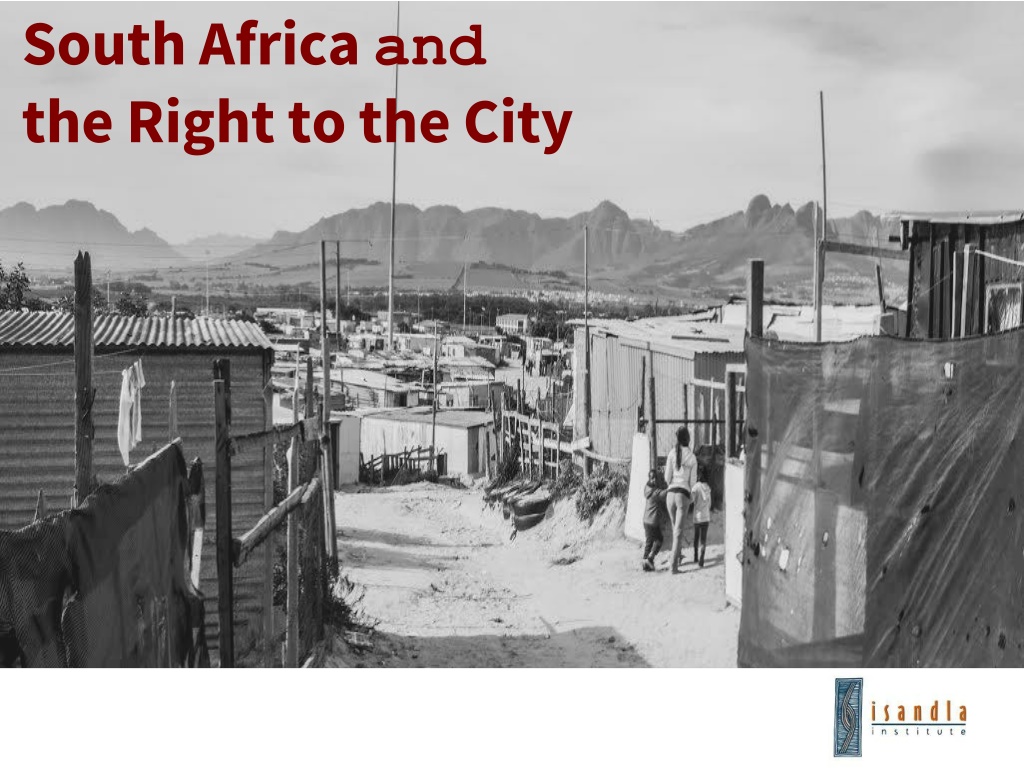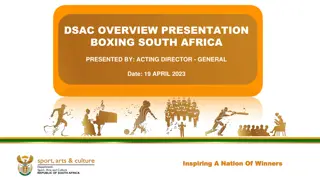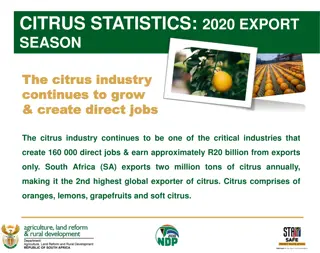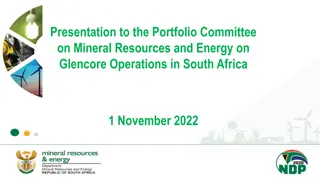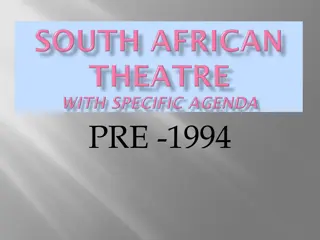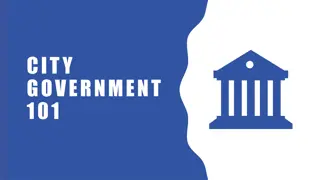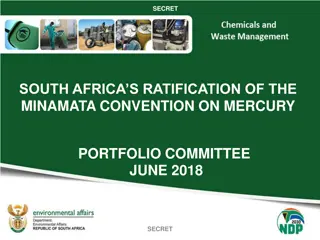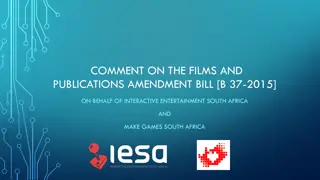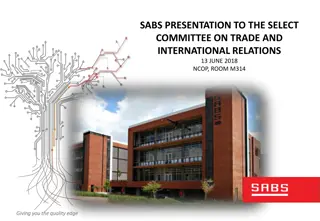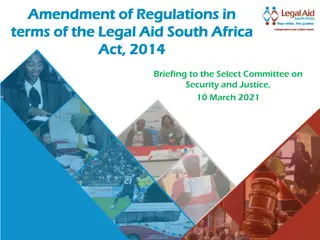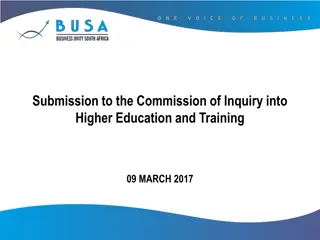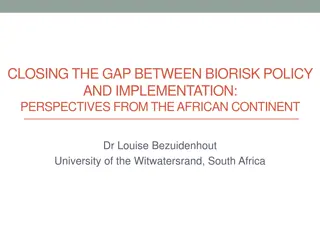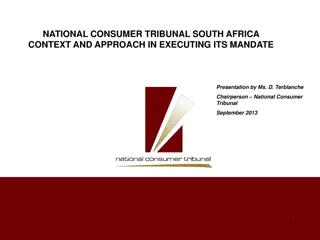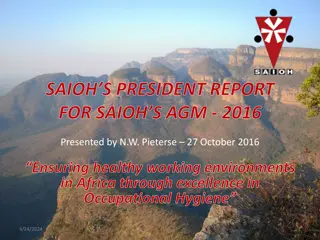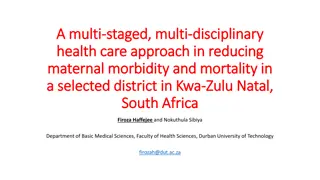South Africa and the Right to the City
Delve into the principles and perspectives surrounding the Right to the City in South Africa, exploring themes such as accountable governance, participatory planning, and urban citizenship. Understand the key elements shaping urban development and social justice in the country.
Download Presentation

Please find below an Image/Link to download the presentation.
The content on the website is provided AS IS for your information and personal use only. It may not be sold, licensed, or shared on other websites without obtaining consent from the author.If you encounter any issues during the download, it is possible that the publisher has removed the file from their server.
You are allowed to download the files provided on this website for personal or commercial use, subject to the condition that they are used lawfully. All files are the property of their respective owners.
The content on the website is provided AS IS for your information and personal use only. It may not be sold, licensed, or shared on other websites without obtaining consent from the author.
E N D
Presentation Transcript
South Africa and the Right to the City
Methodology Methodology Review of policy, legislation and relevant literature Expert perspectives Isandla Institute compiled the South African case study by drawing on the input of experts working in the country s urban sector. These included perspectives from civil society, academia and government institutions
What is the Right to the City? What is the Right to the City? Drawing on the World Charter for the Right to the City, relevant literature and a consultative process with community-based organisations in Cape Town we understand the Right to the City to be a discourse that promotes: the exercise of full citizenship the democratic management of the city a recognition of the social function of the city and of urban property
Accountable and democratic systems of governance Participatory planning and decision-making Future The right to city making The right to access city resources and opportunities The right to be in the city Safe and cheap public transport Redistributive & integrated land governance system and infrastructure investment Inclusive, employment- creating and livelihood- supporting economies Tenure security and infromal settlement upgrading Sustainable livelihoods and food security Accessible and enabling public services, spaces and goods Administrative justice Present
Principles of the Right to the City Principles of the Right to the City Urban planning and resource allocation Active citizenship Local governance Effective integration Commitment to collaboration and partnerships Redress and redistribution The social function of urban land and property The right to full urban citizenship Acknowledge the role and capacity of the state, especially at the local level Recognise the differentiated effects of policy and practice on woman, youth and vulnerable groups Recognise and enable the agency and choices of the urban poor Efficiency in local governmental processes and resource use Taking cognisance of the dynamics of scale within the city-system Sustainability and environmental justice
In the South African context In the South African context Progressive policy environment where participation is recognised as a key component of democratic governance 63% of South Africans live in cities and towns Hostility towards a perceived urban bias There are approximately 2700 informal settlements in South Africa About 11% of South Africans live in them vs. urban rural
In the South African context In the South African context Mechanism with which to direct the energies of national, provincial and particularly local government Language with which to frame and give weight to the struggles of the urban poor
Existing debates Existing debates ARTICULATIONS WITH WORLD CHARTER RELEVANT POLICY AND LEGISLATION Guards against all forms of discrimination The Constitution of South Africa (1997) Makes provision for socio-economic rights such as the right to housing, water and social security The National Housing Code (2009) Outcome 8 (2010) Encourages the use of public land for social development National Development Plan: Vision Propagates participation, collaboration and partnership for 2030 (2011)
Existing debates Existing debates DIVERGENCE FROM WORLD CHARTER RELEVANT POLICY AND LEGISLATION Grounded in individual property rights and responsibilities, does not formally recognise the social function of land The Constitution of South Africa (1997) The National Housing Code (2009) Citizenship tied to national identity Outcome 8 (2010) Right to work not yet promulgated in policy and legislation National Development Plan: Vision for 2030 (2011) Ambiguity about the urban
Manifestations of the Manifestations of the Right City in South Africa City in South Africa Right to the to the Legal right Rallying cry Development imperative
Manifestations of the Manifestations of the Right City in South Africa City in South Africa Right to the to the Legal right Rallying cry Development imperative
Manifestations of the Manifestations of the Right City in South Africa City in South Africa Right to the to the Legal right Rallying cry Development imperative
Tools and instruments Tools and instruments Participation substantial Decline in public trust Corruption Elite capture Formal structures put in place to ensure citizen participation Radicalisation of relationships Party politics External agenda setting
Tools and instruments Tools and instruments Substantial participation Trust in institutions Negotiation Corruption Contestation A variety of coherent, innovative tools, methodologies and structures Knowledge/ex Elite capture Party politics pertise Partnership, collaboration and co-creation Learning External agenda setting Public service ethos Intermediation
Accountable and democratic systems of governance Participatory planning and decision-making Future The right to city making The right to access city resources and opportunities The right to be in the city Safe and cheap public transport Redistributive & integrated land governance system and infrastructure investment Inclusive, employment- creating and livelihood- supporting economies Tenure security and informal settlement upgrading Sustainable livelihoods and food security Accessible and enabling public services, spaces and goods Administrative justice Present
Achieving the Right to the City in South Africa Achieving the Right to the City in South Africa Incremental INFORMAL SETTLEMENT UPGRADING participatory COMMUNITIE S OF PRACTICE
Final remarks Final remarks POTENTIAL FOR UPTAKE UPTAKE TO DATE No formal uptake at national, provincial or local level What shape will the Right to the City take? Existing progressive policy environment Mechanism for invigorating and directing institutional energies Language to frame and give weight to local struggles Is it feasible to advocate for the adoption of the Right to the City? Will the Right to the City add value?
